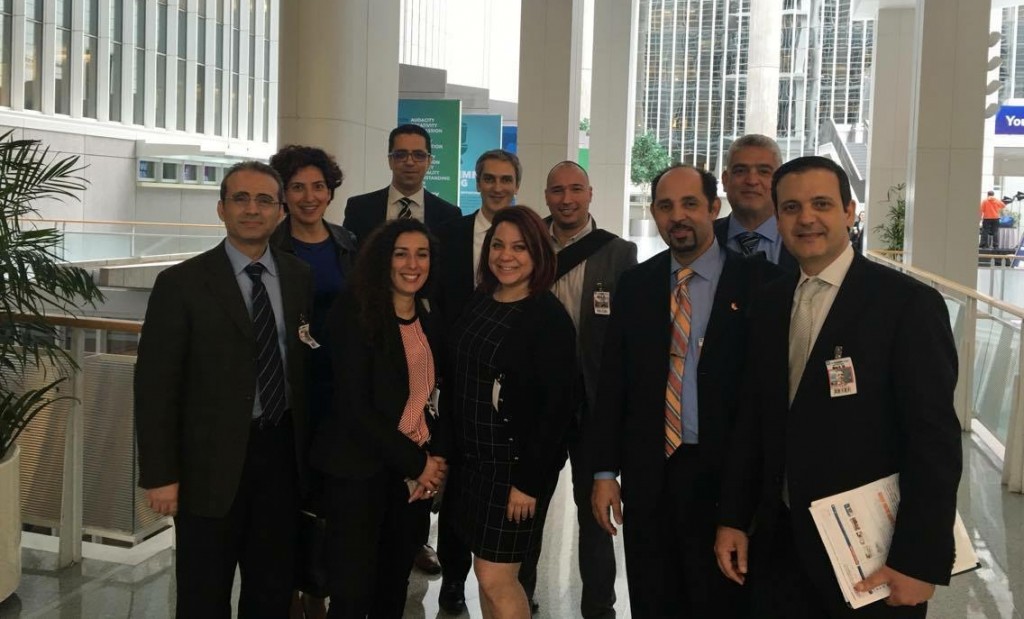The Foundation of the Tunisian-American Joint Economic Commission

Tunisia’s economy is currently weak, coupled with a relatively volatile regional security situation and sky-high unemployment, there is much cause for worry. However, Tunisia also has a lot going for it. The country’s economic potential and geo-political relevance are inspiring the international community and investors worldwide to take a closer look, and the United States is no exception.
The Joint Economic Commission (JEC) held in Washington D.C. on May 6, 2016, reaffirmed the growing economic partnership between Tunisia and the United States and the importance of coordinated efforts between the public and private sectors for economic strength. The commission was held under the auspices of Under Secretary for Economic Growth, Energy, and the Environment, Catherine A. Novelli, and Tunisian Minister of Vocational Training and Employment, Zied Ladhari.
While, for the last five years, analysts have stressed the need for Tunisia’s government to address issues of regional inequality and pervasive corruption, if the latter is to gain trust- concrete, healing steps will have to be taken. Open dialogue and constructive communication between decision makers, the private sector, the public, the unions, relevant NGOs and the media should be bolstered through new, robust mechanisms of continuous communication and collaboration that can begin to build trust. The Tunisian government should also begin showing that it can quickly and effectively deliver results: cutting down red tape for entrepreneurs as well as improving fairness and tax collection, will all help develop a healthier business climate.
Tunisia equally needs to promote its economic potential, its democratic progress and its key position as a gate to other African and Arab states whenever possible- and the JEC presented such an occasion where Tunisian government officials, private sector leaders as well as civil society groups such as Tunisian American Young Professionals have shown the opportunities that Tunisia provides for investors and international partners.
At the JEC governments and the private sector made commitments to support initiatives in three key sectors: (1) Agro/Food, (2) Small and Medium Enterprises (SMEs), and (3) Information and Communications Technology.
The final Joint JEC Statement by the United States of America and the Republic of Tunisia outlines the concrete steps laid out for each sector and the various pledged commitments by the different participants from trade facilitation and promotion, to technical expertise sharing, possible ratification of UN conventions for the facilitation of SME creation and commerce, digitization of access for business registration, ICT cooperation and targeted vocational training.
In a speech that reflected on the future of the JEC from the perspective of the Tunisian diaspora, Mohamed Malouche, Chairman of Tunisian American Young Professionals, emphasized the need to have a clear plan “to ensure that the fundamentals of a strong long term economic relationship are put in place—irrespective of who wins the next 5 elections in the US and the next 5 elections in Tunisia.”
He illustrated that this cannot be done without establishing a solid baseline for a viable long term economic relation, building a roadmap together of which the sectors and the commitments discussed by the JEC are key components but not the only components, and evolving the relationships from aid and economic assistance to a mutually beneficial, and sustainable relationship based on trade, cooperation and partnerships.
He praised the focus of the Commission on innovation and tied this to the importance of initiatives such as Smart Tunisia with its visit to Silicon Valley “which for the first time brought together the Tunisian private sector, the diaspora and both governments” and called on efforts to increase the number of “visits every year to not only Silicon Valley but also other innovation centers in the US, and vice versa taking US innovators to Tunisia to access the human capital and the emerging entrepreneurial ecosystem that exist there” with the aim to ultimately build a “dynamic of ICT exchanges that can last.”
Malouche shared TAYP’s experience with the RISE program, launched with the help of the US embassy in Tunis. The program “expands the aperture of pre-growth stage entrepreneurs, helps them think globally, and works with diaspora mentors on partnerships with US entities.” The mentors have been able “to link innovators on both sides and plant the seed of the type of equal footing collaboration that can transform the economic relationships.” He explained further that the RISE program was designed not only to “create success stories in Tunisia, but it has also been designed to be beneficial to US partners.”
Both the US and the Tunisian Governments have important tasks ahead of them. For Tunisia: accelerating economic reforms, addressing implementation issues, building capacities and addressing the trust and dialogue issues are key. While, on the US side, improving trade and access to the US market in key labor intensive sectors (agribusiness, textile and handicrafts) could create thousands of much needed jobs in the most vulnerable areas of Tunisia.
Malouche stressed that when it comes to textile, “it is urgent to not let Tunisia be at a disadvantage compared to other countries that hold an FTA and those that benefit from regional preferential agreements such as AGOA.” Regarding handicrafts, he invited relevant parties to scale up efforts to streamline the supply chain of handicrafts distribution to the US, address the cost of shipping and payment issues as well as raise the visibility of Tunisian handicrafts in the US.
While the JEC’s main short-term component focuses on much needed economic reform and assistance programming, Malouche highlighted that in the medium and long run, “it should very much be about win-win cooperation to not only develop Tunisia, but also rebuild Libya and access the market together in sub-Saharan Africa and the MENA region.”
In conclusion Mohamed Malouche pledged TAYP’s profound commitment to working hard and relentlessly on making this JEC an engine for such a collaboration.


About the author
Rad Aniba